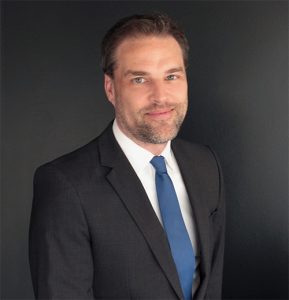Scar corrections
Scar revision is a medical and aesthetic procedure that aims to improve the appearance of scars, reduce their size or smooth their texture. Scars can occur for a variety of reasons, such as injuries, surgeries, burns or acne. While some scars fade and become less noticeable over time, others can be permanently disruptive, both aesthetically and functionally.
Types of Scars
Types of Scars
Scars can come in different shapes and types that require different treatments:
Hypertrophic scars: These scars are raised and often result from excessive production of collagen during healing. They stay within the boundaries of the original wound.
Keloids: Keloids are thickened scars that grow beyond the original wound and are caused by the body’s excessive response to the injury. They are often reddish or purple and may cause itching or pain.
Atrophic scars: These scars are below the level of the surrounding skin and often form after acne or chickenpox. They often look like small depressions in the skin.
Contractures: These scars often form after burns and can limit the mobility of the skin as they tighten the underlying tissue.
Scar Revision Treatment Methods
Scar Revision Treatment Methods
There are a variety of methods for correcting and improving scars, which are selected depending on the type of scar and individual needs:
Injections: Steroid injections can help shrink hypertrophic scars and keloids by inhibiting collagen production. Filler injections such as hyaluronic acid can fill in atrophic scars and even out skin levels.
Pressure treatment and silicone dressings: These techniques can control the growth of hypertrophic scars and keloids. Silicone gels or patches are applied to the scar to improve texture and make the scar softer and flatter.
Microneedling: This method uses fine needles to create tiny injuries in the skin that can stimulate the healing process and improve the appearance of scars by creating new collagen.
Surgical scar revision: In severe cases, surgical removal or correction of the scar may be necessary. This involves removing the old scar and re-closing the wound using cosmetic principles. This can make the scar less noticeable or improve mobility.
Recovery period and aftercare
Recovery period and aftercare
The recovery period after scar correction depends on the type of treatment. Non-invasive procedures such as laser therapy or microdermabrasion usually require only a short downtime, while surgical procedures require a longer healing time and careful aftercare. In most cases, it is recommended to protect the treated area from the sun to avoid pigmentation and achieve the best possible result.
Risks and Complications
Risks and Complications
As with any medical procedure, there are potential risks associated with scar revision. These may include infection, unwanted pigmentation, inadequate improvement, or in rare cases even worsening of the scar appearance. A thorough consultation with an experienced dermatologist or plastic surgeon is crucial to choose the best treatment option and minimize the risks.
Conclusion: Scar corrections offer a wide range of options for improving the appearance of bothersome scars and boosting self-confidence. Through a combination of modern techniques and individual advice, most scars can be treated successfully. It is important to have realistic expectations and to seek advice from a qualified specialist to determine the appropriate method and the best time for treatment.
Institute for Plastic and Aesthetic Surgery
Institute for Plastic and Aesthetic Surgery
The Institute for Plastic and Aesthetic Surgery at the Glückstadt Clinic deals with functional, cosmetic, shape-changing and reconstructive procedures.
In this area, surgical procedures are performed for both aesthetic and functional reasons.
In order to work as a doctor in this field in Germany, you must complete training as a specialist in plastic and aesthetic surgery.
Career
After completing his medical studies at the University of Kiel, Dr. Bönke initially worked there and completed basic surgical training in cardiac and vascular surgery at the Schleswig-Holstein University Hospital in Kiel. In 2015, he then switched to the clinic for plastic and hand surgery with a center for severe burns at the St. Georg Hospital in Leipzig. In 2017 he followed Prof. Dragu to the University Hospital in Dresden, where he played a key role in founding the Department of Plastic and Hand Surgery, where he most recently worked as senior physician. Since 2023 Dr. Bönke leads together with Prof. Dr. Said the Institute for Plastic and Aesthetic Surgery at Glückstadt Hospital.
Since 2015 Dr. Bönke works exclusively in plastic and aesthetic surgery. In addition to the reconstruction and restoration of the body shape using free tissue transfer and hand surgery, he specialized in body shaping and tightening operations after weight loss.
Dr. Bönke is a specialist in plastic and aesthetic surgery and a member of the German Society for Plastic, Reconstructive and Aesthetic Surgery (DGPRÄC). He also has an additional qualification in hand surgery.
Indications
Abdominoplasty / tummy tuck
thigh lift
upper arm lift
body lift
liposuction
Liposuction for lipoedema
scar corrections
Local flaps
(Free flap plastics)
Hand Surgery:
Secondary tendon reconstruction
Tendon transfer / tendon rearrangement
Nerve sutures / nerve reconstruction / nerve transplant
Annular ligament release in tendovaginitis stenosans (snap fingers)
extensor tendon cleavage
Nerve decompression (e.g. carpal tunnel, loge de gyon, sulcus ulnaris)
Ganglion
M. Dupuytren
Was unsere patienten sagen
Unsere Patienten erleben medizinische Spitzenqualität in einem exklusiven Ambiente. Persönliche Betreuung, modernste Technik und luxuriöse Patientensuiten schaffen eine Atmosphäre, die den Klinikaufenthalt neu definiert.
Lesen Sie, was unsere Patienten über ihre Erfahrungen berichten.
WHAT OUR PATIENTS SAY
Our patients experience top-quality medical care in an exclusive setting. Personalized care, state-of-the-art technology, and luxurious patient suites create an atmosphere that redefines the hospital experience.
Read what our patients say about their experiences.
CE QUE DISENT NOS PATIENTS
Nos patients bénéficient de soins médicaux de haute qualité dans un cadre exclusif. Des soins personnalisés, une technologie de pointe et des suites luxueuses créent une atmosphère qui redéfinit l’expérience hospitalière.
Lisez ce que nos patients disent de leurs expériences.
COSA DICONO I NOSTRI PAZIENTI
I nostri pazienti beneficiano di cure mediche di altissima qualità in un ambiente esclusivo. Assistenza personalizzata, tecnologie all’avanguardia e suite di lusso per i pazienti creano un’atmosfera che ridefinisce l’esperienza ospedaliera.
Leggi cosa dicono i nostri pazienti delle loro esperienze.
LO QUE DICEN NUESTROS PACIENTES
Nuestros pacientes reciben atención médica de primera calidad en un entorno exclusivo. Atención personalizada, tecnología de vanguardia y suites de lujo crean un ambiente que redefine la experiencia hospitalaria.
Lea lo que nuestros pacientes dicen sobre sus experiencias.
OUR Hospital AND DOCTORS ARE LICENSED AND SUPERVISED BY



OUR Hospital AND DOCTORS ARE LICENSED AND SUPERVISED BY





